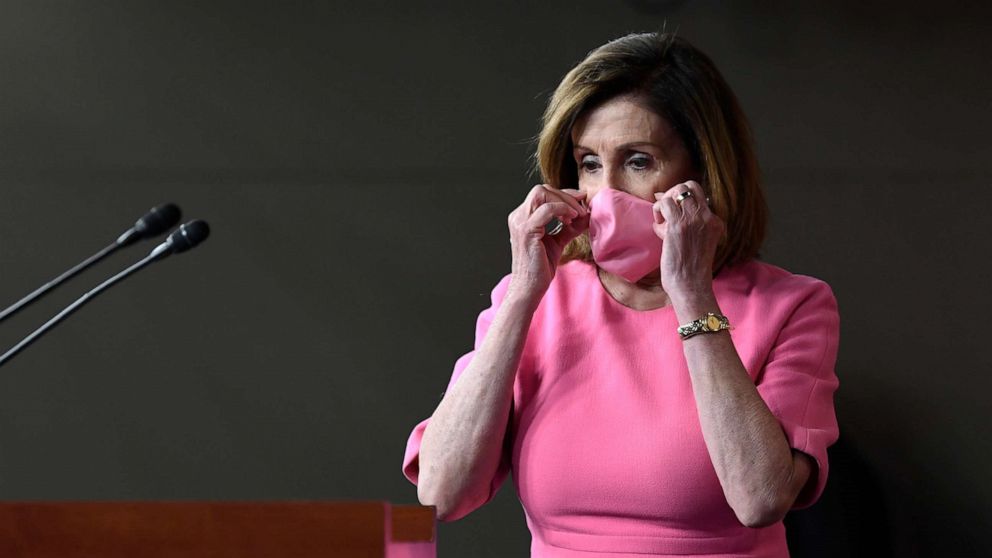For many free-spirited Americans, a face mask may feel like an uncomfortable blot on personal expression. But as states slowly begin to ease coronavirus restrictions, some medical experts are trying to put a happier face on those coverings — touting them as a symbol of kindness and a tool in the effort to slow viral spread.
“It is really part of our social contract,” said Dr. Lisa Maragakis, senior director of infection prevention at Johns Hopkins University. “It’s an act that we’re doing to protect other people.”
Using masks as an everyday accessory has not come quickly or easily for the nation. Almost from day one, masks have been pushing political buttons.
Speaker of the House Nancy Pelosi sought to lend some old-fashioned machismo to the cloth covering this week.
“Real men wear masks,” she declared in her weekly news conference on Thursday.
But on the other side of Pennsylvania Avenue, President Donald Trump seemed to think there was something un-manly about the masks. Even as his own federal health officials began strongly advising their use, he has resisted appearing in public wearing one.
“I didn’t want to give the press the pleasure of seeing it,” he said recently after appearing at a Detroit auto factory without one before cameras. He reportedly wore one on a private tour of the facility, where masks are required.
There have been signs the face coverings could be turning into another reason for skirmish in the nation’s ongoing culture war, with conservatives like Louisiana Republican Clay Higgins among a small group from Congress resisting the accessory. Higgins went on CNN recently to declare the masks a form of “dehu

